The story of Rabbi Yochanan ben Zakkai
The Roman general, and soon-to-be emperor, Titus, was not merciful to Jerusalem. His soldiers laid it to rubble during a lengthy and bitter siege. It is reported that his soldiers had heard that there was gold in the stones of the Temple. So they smashed the stones one by one and left not one stone upon another.
During the lengthy siege, when it was apparent that Rome was going to triumph, a group of Pharisees pondered how to enable Judaism to survive the Roman conquest. They devised a plan to get their master, Yochanan ben Zakkai, out of the city to keep Pharisaical Judaism alive. They placed him in a coffin along with some rotten food scraps (to make an odor like a dead body) and wheeled him out of the gates. They were able to convince the guards that he was dead.
Rabbi Yochanan got out of the coffin and sought an audience with Titus. He was able to appear before the general and won favor with him by telling him that he would be the next emperor. Titus asked if there was anything he could do for Rabbi Yochanan. The esteemed rabbi knew what had to be done and said, “Give me Yavneh and its sages.” He wanted to establish a school of rabbis at Yavneh and keep Judaism alive. Titus granted his request.
At Yavneh, the rabbis discussed the issue of Judaism after the Temple. One day Rabbi Yochanan and a disciple were discussing this very issue and the disciple asked Rabbi Yochanan what could be done. The rabbi quoted Hosea 6:6, “I desire mercy, not sacrifice.” He told his disciple that the sacrifices were not necessary any longer, only prayer, repentance, and good deeds. The school of rabbis at Yavneh formally concluded in 90 CE that prayer, repentance, and good deeds replaced the sacrifices that Moses had taught.
This was a great way to enable Pharisaic Judaism to continue, but is it true? Repentance is mentioned as necessary for atonement (forgiveness of sins), but not as a replacement for blood sacrifice. Repentance must accompany sacrifice for atonement to work. In Hosea 6:6, for example, the prophet teaches that chesed (Hebrew for “devotion” or “covenant loyalty”) must accompany sacrifice or sacrifice is meaningless. The verse does not say, as Rabbi Yochanan implied, that good deeds replace sacrifice. Chesed in later times came to mean acts of charity, as Rabbi Yochanan understood it, but biblically referred to devotion. Hosea’s point was this: sacrifices without devotion to God are meaningless rituals.
But Rabbi Yochanan’s interpretation won the day and became the foundation of modern Judaism. Modern Judaism is a religion of prayer, repentance, and good deeds. The Judaism of Moses, however, was a religion of faith, obedience, and blood sacrifice. The two religions only resemble one another, for they are fundamentally different.
So what about Rabbi Yochanan? Was he convinced that he was right? Well, the Talmud records a sad scene at the death bed of the great rabbi. It seems he wasn’t so sure:
Berachot 28b: “When R. Jochanan ben Zakkai was ill, his disciples went in to visit him. On beholding them he began to weep. They said to him, ‘O lamp of Israel, right hand pillar, mighty hammer! wherefore do you weep?’ He replied to them, ‘If I was being led into the presence of a human king who today is here and tomorrow is in the grave, who if he was wrathful against me his anger would not be eternal, who if he imprisoned me the imprisonment would not be everlasting, who if he condemned me to death the death would not be forever, and whom I can appease with words and bribe with money — even then I would weep; but now, when I am being led into the presence of the King of kings, the Holy One, blessed be he, who lives and endures for all eternity, who if he be wrathful against me his anger is eternal, who if he imprisons me the imprisonment is everlasting, who if he condemns me to death the death is forever, and whom I cannot appease with words or bribe with money — nay more, when before me lie two ways, one of Gan Eden [heaven] and the other of Gehinnom [hell], AND I KNOW NOT TO WHICH I AM TO BE LED — shall I not weep?”
If the great rabbi, Yochanan ben Zakkai, wasn’t sure, can you really be sure? Do you know for certain that your prayer, repentance, and good deeds are going to find you a place in heaven? Are you practicing the religion of the Torah, or just the religion of the rabbis? There is a sacrifice for sin that is available to you by faith in the sacrificial, atoning death of Yeshua HaMashiach (Jesus the Messiah). His sacrifice is acceptable to God. How do we know? Because he rose from the dead to prove it! For more on the resurrection, see Why Should Anyone Believe in Jesus?
